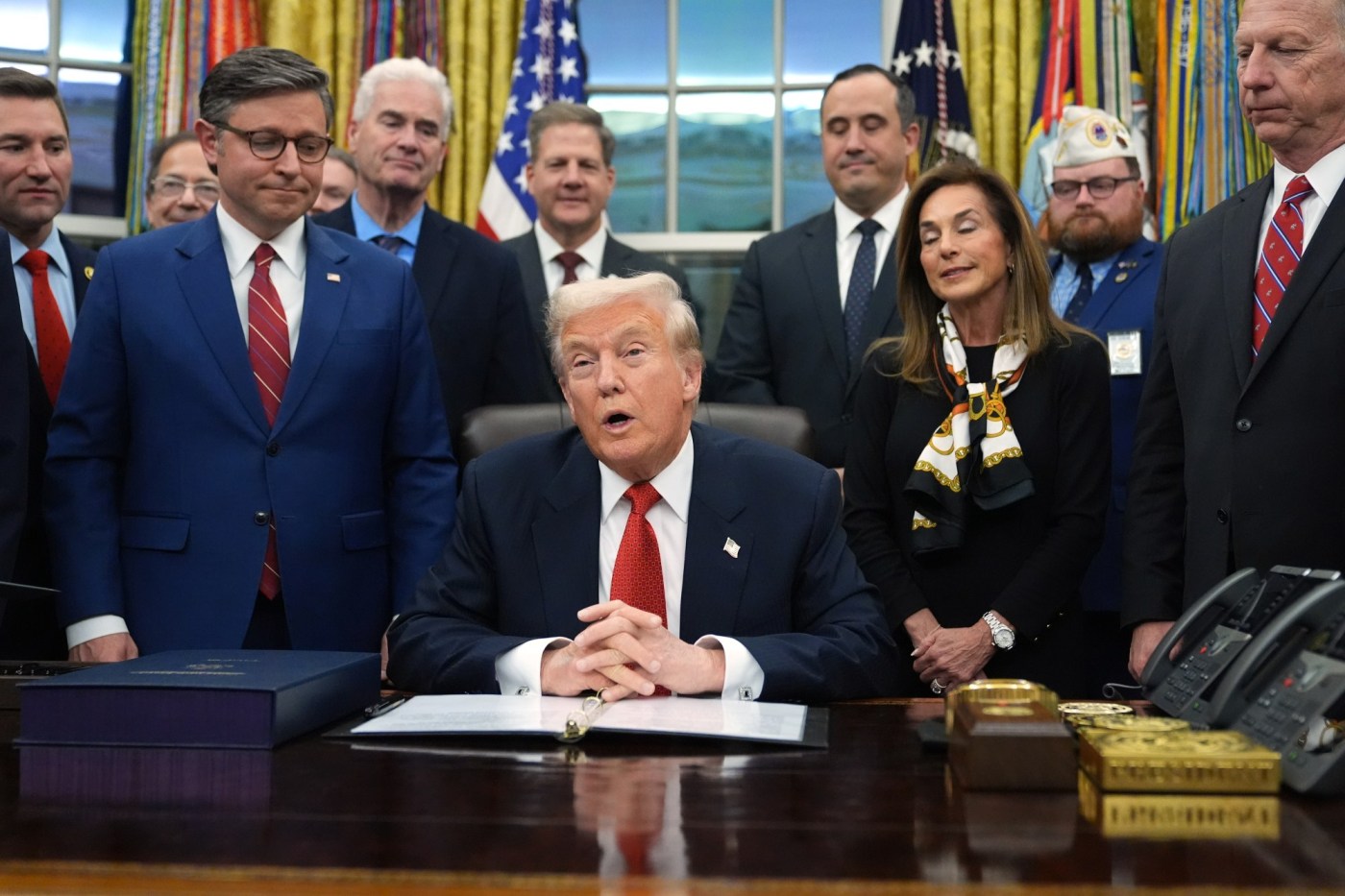Politics
Government Shutdown Ends with Few Winners and Lasting Impact

The recent government shutdown, which lasted for 43 days, concluded with President Donald Trump signing a funding bill that provided temporary relief but left many dissatisfied. The shutdown began on October 1, 2023, as congressional Democrats pushed for an extension of subsidies to help Americans afford premiums under the Affordable Care Act. Ultimately, the agreement did not include the health care tax credits that were a core demand of the Democrats.
In the aftermath of the shutdown, the consensus among political analysts is that there are few winners, with many citing the American people as the primary losers. Max Stier, president and CEO of the Partnership for Public Service, described the experience for federal employees as a “layer cake of horror.” He likened the situation to returning home after a devastating hurricane, emphasizing the chaos and disruption caused by the shutdown.
Democratic leaders, including Senate Democratic leader Chuck Schumer, faced criticism for their inability to secure more favorable terms during negotiations. Political analyst Larry Sabato from the University of Virginia’s Center for Politics noted that the Democrats highlighted their diminished power in a Congress controlled by the Republican Party. He questioned the strategy employed by Democratic leaders, remarking, “Whatever did they have in mind?”
While Democrats did manage to include provisions in the funding bill to ensure reimbursement for states under the Supplemental Nutrition Assistance Program (SNAP), they left themselves vulnerable to critique. Critics argue that they could have reached an agreement sooner, potentially mitigating the effects of the shutdown. The bill guarantees that furloughed federal workers will receive back pay, although this was uncertain due to the Trump administration’s stance.
During the signing ceremony, President Trump, flanked by Republican leaders, addressed the nation, urging Americans not to forget the implications of the shutdown as the midterm elections approach. “When we come up to midterms and other things, don’t forget what they’ve done to our country,” he stated, referring to the Democrats.
The shutdown had significant repercussions, including the suspension of federal paychecks, disruptions in air travel, and delays in various services. Stier emphasized that the government has a fundamental responsibility to remain operational, arguing that using shutdowns as leverage in political disputes is unacceptable. “There are no winners,” he remarked, adding that the country as a whole suffered considerable harm.
The Council of Economic Advisors estimated that the shutdown cost the economy approximately $15 billion per week, with hundreds of thousands of federal employees furloughed and many working without pay. Furthermore, around 60,000 non-federal workers lost their jobs during this period of economic distress. SNAP benefits for millions of recipients were at risk, prompting Maryland Governor Wes Moore to announce the release of $62 million to ensure full assistance for November.
As the government resumes operations, the looming deadline of January 30, 2024 for the next funding bill raises concerns about a potential repeat of the recent crisis. Steny Hoyer, the Democratic former House majority leader, urged Congress to prioritize funding and health care in the upcoming discussions. He stated, “As we work to complete our Fiscal Year 2026 appropriations these next 78 days, I will push this Congress to do what it should have done at the start.”
Speaker of the House Mike Johnson, who has expressed opposition to extending health care credits, has not indicated whether he will allow a vote on this matter. House Democratic leadership plans to introduce a petition aimed at forcing a vote on a three-year extension, which would require bipartisan support to succeed.
The conclusion of the shutdown marks not only a temporary reprieve but also a reminder of the ongoing tensions within Congress. As leaders prepare for the next funding deadline, the opportunity for collaboration appears uncertain. The repercussions of this shutdown will likely influence political strategies and public sentiment in the months to come.
-

 Science4 weeks ago
Science4 weeks agoIROS 2025 to Showcase Cutting-Edge Robotics Innovations in China
-

 Lifestyle1 month ago
Lifestyle1 month agoStone Island’s Logo Worn by Extremists Sparks Brand Dilemma
-

 Health4 weeks ago
Health4 weeks agoStartup Liberate Bio Secures $31 Million for Next-Gen Therapies
-

 Science2 weeks ago
Science2 weeks agoUniversity of Hawaiʻi at Mānoa Joins $25.6M AI Initiative for Disaster Monitoring
-

 World1 month ago
World1 month agoBravo Company Veterans Honored with Bronze Medals After 56 Years
-

 Politics4 weeks ago
Politics4 weeks agoJudge Considers Dismissal of Chelsea Housing Case Citing AI Flaws
-

 Health1 month ago
Health1 month agoTop Hyaluronic Acid Serums for Radiant Skin in 2025
-

 Science1 month ago
Science1 month agoArizona State University Transforms Programming Education Approach
-

 Lifestyle1 month ago
Lifestyle1 month agoMary Morgan Jackson Crowned Little Miss National Peanut Festival 2025
-

 Business1 month ago
Business1 month agoTruist Financial Increases Stake in Global X Variable Rate ETF
-

 Sports1 month ago
Sports1 month agoYamamoto’s Mastery Leads Dodgers to 5-1 Victory in NLCS Game 2
-

 Top Stories1 month ago
Top Stories1 month agoIndonesia Suspends 27,000 Bank Accounts in Online Gambling Crackdown









